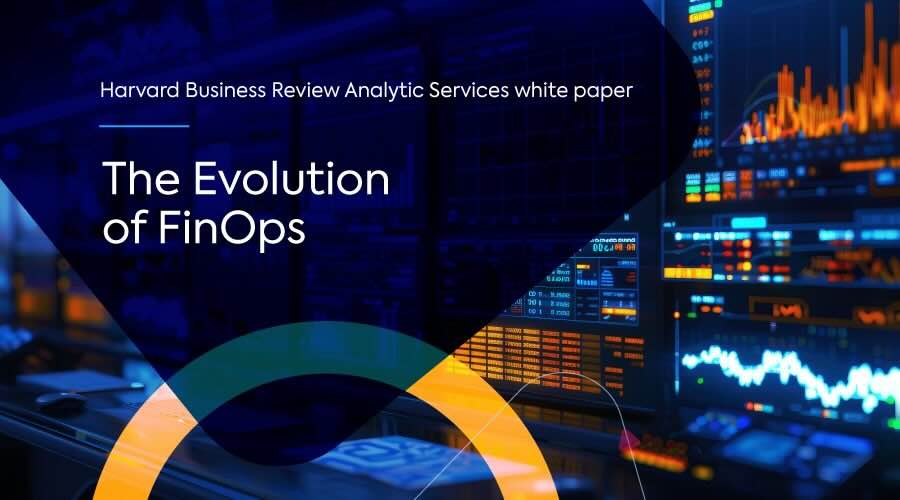
A look at the new Harvard Business Review Analytics Services white paper: The Evolution of FinOps
Cloud financial management, known as FinOps, is a framework that sits at the juncture of financial operations and developer operations (DevOps) functions. Initially, FinOps focused on controlling the cost of cloud infrastructure and compute services, and thus it was mostly the domain of cloud analysts, cloud governance and, of course, finance and procurement teams.
But over the past several years, as more businesses have begun relying on the cloud, the role of FinOps has expanded. Once just concerned with cost containment, its focus is now on aligning cloud operating costs with business outcomes. In practice, this means assessing the impact of cloud costs on the application’s underlying infrastructure, then making the right tradeoffs to achieve the desired performance and reliability experience for end-users in line with business and financial objectives. As a result, FinOps conversations are happening earlier in the product development process, with cloud resources and cost considerations now being incorporated into the planning and development process for cloud-based applications.
With this evolution in the scope of FinOps, the various personas involved in FinOps have expanded too. DevOps, infrastructure cloud operations, cloud architects, product owners and business leaders, and even the C-suite are now key stakeholders in making FinOps successful, especially since cloud costs have become a significant operational expense and a board-level concern. As a result, according to Jevin Jensen, research vice president, intelligent cloud and Finops practice at analyst firm IDC, “In 2024, 75% of Global 2000 reported active FinOps teams up from 72% last year.”1. In reality, this means that FinOps is essentially now everyone’s job.
The future of FinOps
As FinOps processes and tooling matures and evolves, they will play a role in almost every aspect of running a cloud-focused business, including application performance and reliability, product development and innovation, pricing and profit margins, financial budgeting and planning, sustainability, security and many other key business outcomes.
The explosion of artificial intelligence (AI) will further accelerate this trend. The high cost of AI, coupled with the scarcity of GPU resources needed to support high-performance computing, will require tight collaboration across all FinOps stakeholders to define and deliver an AI strategy that addresses the organization’s business and financial needs.
And beyond the people and the tooling, organizations need to define and build playbooks, best practices, policies and guardrails. Not only will this help ensure consistency regarding adoption, enforcement and outcomes of FinOps strategies, it will also help provide the foundation to drive a FinOps culture and promote ownership and accountability for the cloud throughout the organization.
People, processes and technology
In this new white paper, “The Evolution of FinOps: Fueling Innovation and Enhancing Business Efficiency and Performance,” the Harvard Business Review explores how companies should evaluate, refine and evolve their FinOps processes to address their business needs.
With key insights from industry luminaries and FinOps evangelists from the FinOps Foundation, analyst firm IDC, Fidelity and Tealium, it delves into the evolution of FinOps principles, roles and responsibilities. It then discusses the cultural shift required to drive cooperation between all FinOps stakeholders to achieve effective decision making based on the value of the cloud to the business. Underscoring these outcomes is the need for tooling that provides accurate and timely data together with intelligent AI-driven automation to implement these FinOps processes.
Check out the new white paper to learn more about how the “golden triangle” of people, process and technology provides the foundation for the evolution of FinOps.

